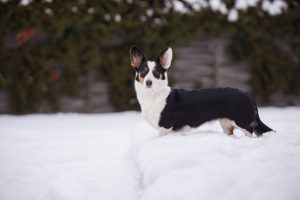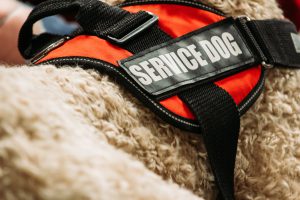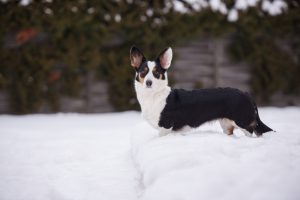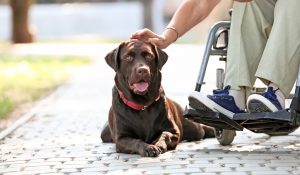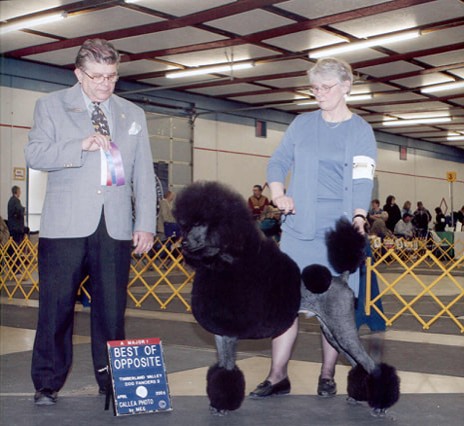
Breeder Spotlight – Tudorose Poodles
Jac Harbour is pictured above with Can/Am Ch.Tudorose Ye Old Pretender (Sur) has been in standard poodles since 1972 and can be reached at tudorose72@comcast.net, and her website is http://www.tudorosestandardpoodles.com/. Thank you Jac for being our next breeder spotlight!
What sparked your passion for purebred dogs?
Probably working as a vet tech where the veterinarian bred and raised purebred Miniature Pinchers and Brussels Griffons. I started reading “Our Dogs”, a British weekly paper that reported the shows and their results, as well as interesting articles about showing and breeding etc. I started following Dobermans as the breed I wanted.
I went to a weeklong grooming class where I met the Standard Poodle and I was very attracted to their sense of humour & athleticism. When my husband and I talked about getting a purebred dog he wanted a German Shepherd and I wanted a Doberman so we compromised and got a Standard Poodle.
What is your breed(s)? When did you start breeding?
My first and constant breed has been the Standard Poodle. I also had one Labrador which was my son’s dog. My daughter had a St Poodle. I owned and bred Basenjis for 10 years, Miniature Schnauzers for a couple of years and Border Terriers for another couple of years. I had my first litter of Standard Poodles in 1974.
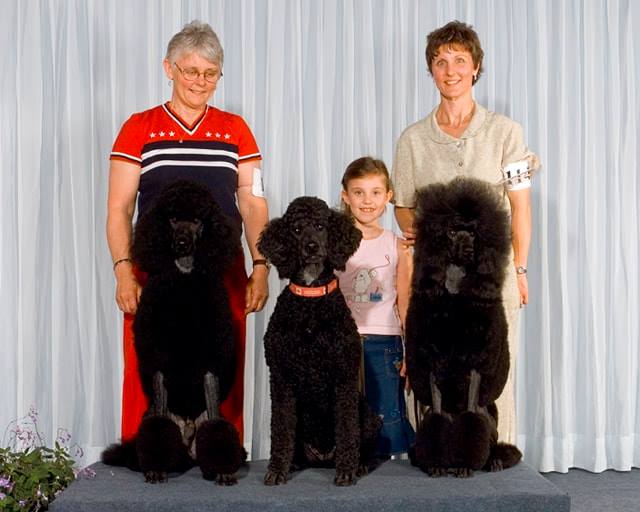
Who was your mentor(s)
Mrs. Ann Griggs of Griggswood Kennels was my first mentor of conformation shows and showing poodles and then Emily Cain mentored my outlook and thinking.
We all grow and change as we learn more as breeders. When you first began your program what was your goal?
My goal was to breed the perfect standard poodle that could do it all, be a conformation champion and an obedience champion which is all we could do at the time I started breeding.
Has your goal changed and if it has, why has it ?
No it has not changed I still want that perfect poodle but the grooming limits me now for conformation showing in the AKC ring. It has expanded to include the progress of breeding healthier dogs with the help of things like COI and now diversity along with the correct conformation and temperament.
You have long been a diversity advocate. What first got you interested in diversity?
I have never followed the crowd and would not breed to the big winning poodles in conformation. I soon found myself not liking what was winning in the conformation ring and decided to breed to Standard Poodles that were doing well in obedience. I wanted titles at both ends but particularly the higher levels of obedience. When I found an unusual dog and it was doing well in other performance sports, as they were introduced, I would seek them out and breed to them.
What would you say is the single most important thing to select for in a performance dog?
Not just in a performance dog but in any dog that is to be bred is confidence. When a dog has confidence is willing to do anything happily the owner asks it to do.
Those of us who have bred a while know it can be a rocky road full of challenges. Has there been a time in breeding you considered quitting?
Yes in about 2001 I considered stopping. The reason was because CH Tudorose Sugar Kane CDX, JH, was diagnosed with Chronic Autoimmune Hepatitis at 7 years of age with no outward sign there was anything wrong. I mentioned by concern to my vet, saying how can I continue to breed when this disease has no warning signs so how can I warn the owners. It devastated me that there were no warning signs. He suggested that I advise all owners to do yearly blood panels from 2 – 3 years of age so that any changes can be noted and tracked and treated as required. I have not produced another dog with this problem that I know of. Just knowing how to catch it as early as possible and being able to advise puppy & dog owners has allowed me to keep on breeding.
What was one of your high points as a breeder?
One of my high points was having the first St Poodle that earned a conformation championship, obedience trial championship and a WCX with CKC CH, OTCH Tudorose Henry 8 th WCX in the 1980s.
In the years to come, when someone is writing the history of your breed, how would you like to be remembered ?
I would like to be remembered for Founding Hearing Ear Dogs of Canada, a nationwide non- profit charitable organization that trains and places dogs to assist hearing impaired and deaf Canadians. “Saucy” (CH & OTCH Tudorose Somerset Duchess) a standard poodle, I trained to assist my hearing impaired mother. She was the first Hearing Ear Dog. Also for introducing Special Skills Dog of Canada, dogs trained to assist physically challenged people while I worked for the Loins Foundation Of Canada.
In the dog world I would like to be remembered for re introducing the Standard Poodle as hunting dogs and bringing them to the public’s attention about what wonderful, clever hunting companions they are.
We, obviously, are a company that empowers breeders to be conservators of their long term diversity and viability. How do you use this in your breeding program?
I tend to find dogs I want to breed to and then see if they are compatible. Because I have concentrated on working dogs rather than the main stream conformation poodles my dogs were found to be quite diverse when I sent my dog’s samples to be tested. I have tried to keep them very diverse.
Since using BetterBred, have you had any exciting keepers you would like to brag about?
I am very proud of Tudorose Rumor Has It, a certified search and rescue dog with several finds to his name and all Tudorose Poodles that were and are service dogs helping people.
Do you have plans you’d like to share about your breeding program?
I hope to continue to breed for a few more years yet.
And finally, do you have words of wisdom to impart to those who have not been in the breed very long? Something you might have liked to have heard, or maybe should have heard?
Do not obtain too many dogs until you really understand and know the dogs you have now. They have to mature and prove their worth as confident, willing to please, and people loving dogs so they can contribute these things to the future.
Step back. look at your dogs critically and be honest about the dogs you have and if there is something that exists that will not contribute something good to the breed then retire it from the breeding pool.
We need to breed confident, happy, willing to please dogs that can accept the chaos of our lives which is so different from a dog’s life. The average person unfortunately can’t read a dog’s body language so we need to breed dogs that are very confident and accepting of what goes on around them.
Have a breeder you’d like to be our next breeder spotlight? email us suggestions at theteam@betterbred.com!
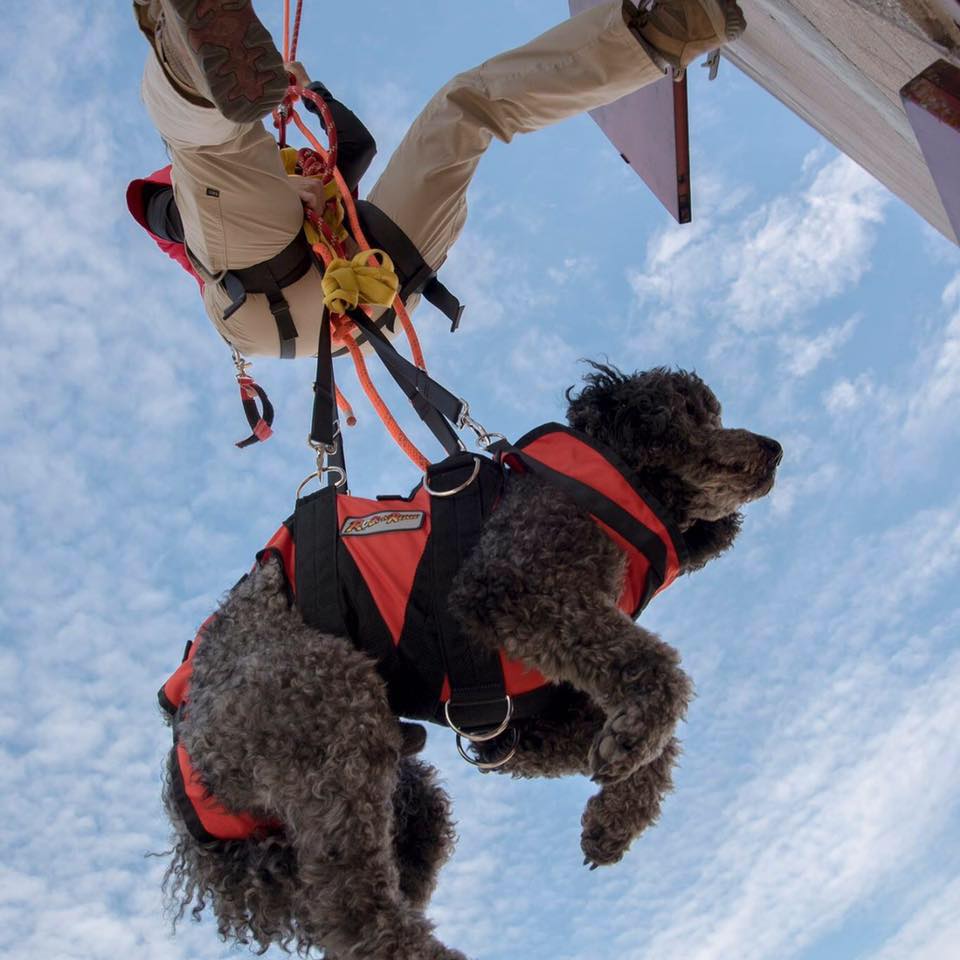
 Previous Post
Previous Post Next Post
Next Post